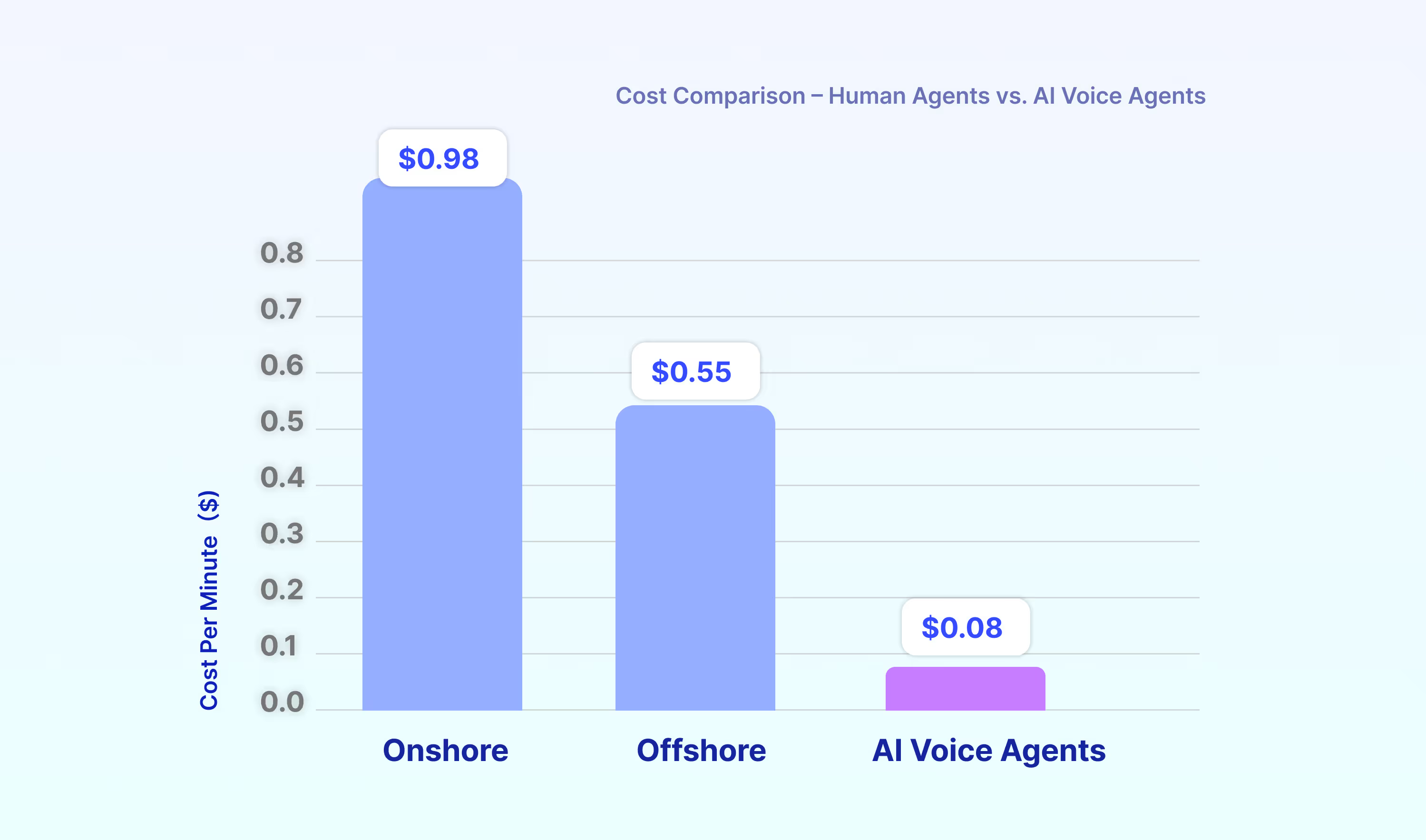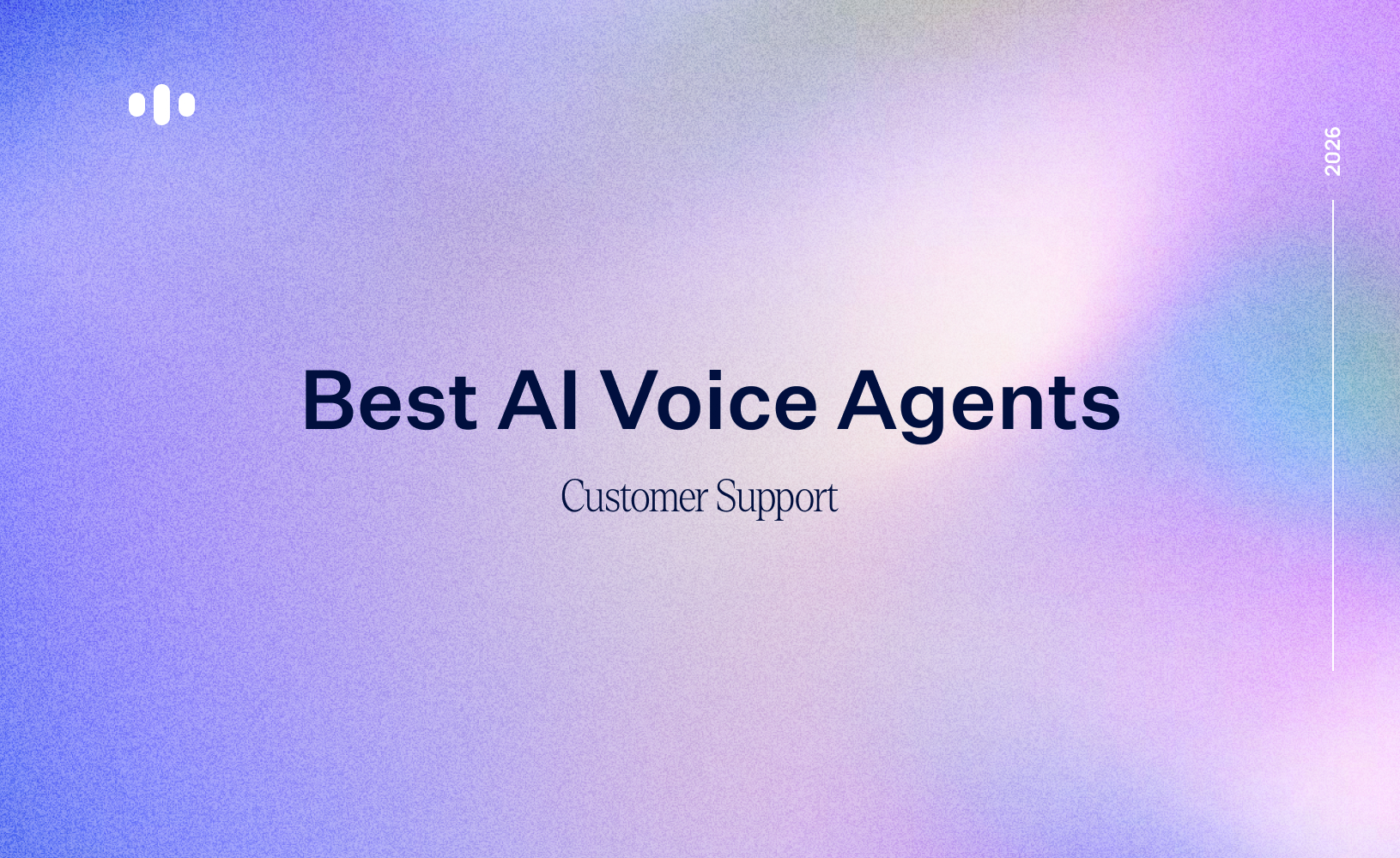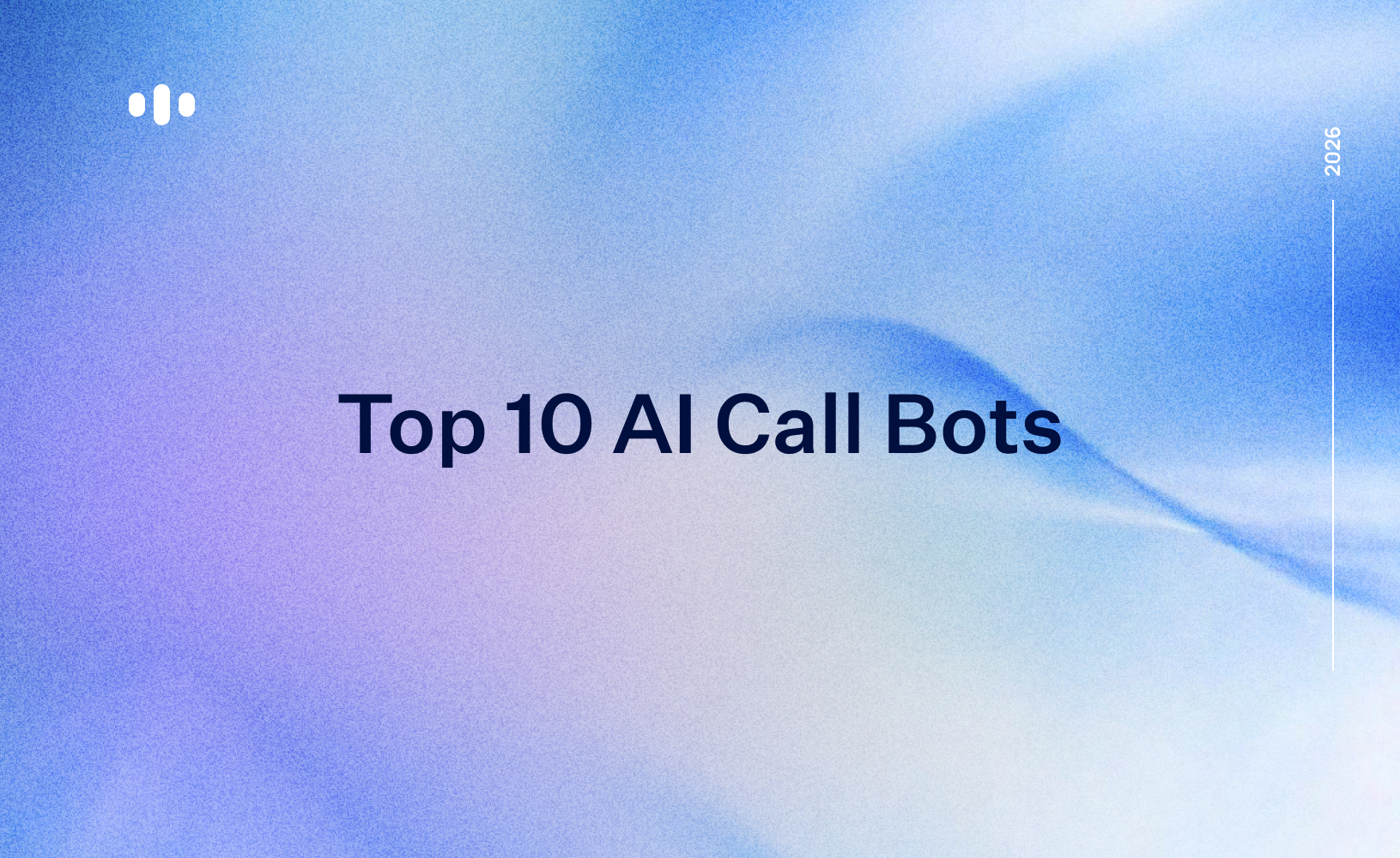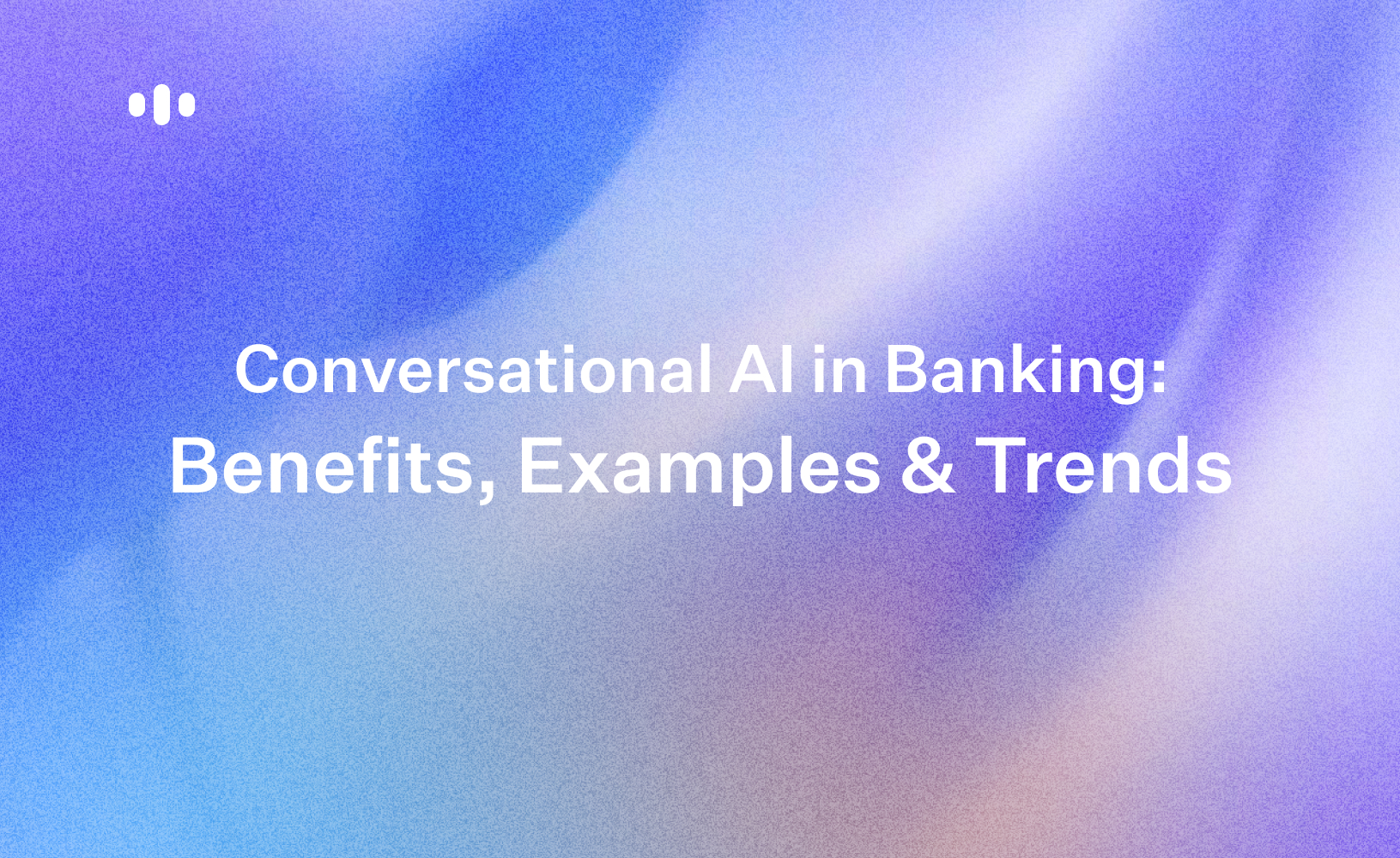Last Updated 6/12/2025
In 2025, AI has moved way past the chat bots we are all familiar with, bringing the most exciting and revolutionary wave of AI powered automation to all our fingertips. While AI’s integration in telecommunications is nothing new, at the forefront of this automation revolution, in 2025, are AI Voice Agents: the most advanced commercial AI automation solution to date. AI that can schedule meetings is one thing, but AI that can take or make almost any of your business calls? That’s game changing.
What are AI Voice Agents?
AI Voice Agents supercharge call center automation, taking business telephone systems from inefficient manual calling to an intelligent, scalable, and cost-effective contact center AI solution. These AI agents are capable of fully automating inbound and outbound call operations, with the intelligence to keep conversations natural and humanlike without sacrificing any of the capabilities that a human agent might have. The shift is already underway, with Deloitte claiming in their 2025 global predictions that 25% of enterprises already using generative AI are expected to deploy AI agents by the end of the year, with that figure projected to double by 2027 (Deloitte). As AI voice agents become more sophisticated their capabilities don't stop at calling. Cutting edge agents have the ability to handle omni-channel communication including SMS (texting) and chats, giving increasing functionality and efficiency to business communication flows.
AI Voice Agents are a multi-industry solution being used by leading providers and top businesses in finance, healthcare, hospitality, and many more customer support teams such as AI receptionist implementations, and many more. The most effective of these voice agents are being built on platforms that enable the highest level of capabilities and features that allow voice agents to comprehend and deal with complex tasks such as lead qualification and customer service.
The features and abilities of AI voice agents are limited to the conversational AI platform they are built on. Platforms vary in coding requirements making it imperative to understand the difference of no code vs custom code platforms to make an informed decision for your business’s call automation needs.
Addressing the Rumors…
Are AI Voice Agents Supposed to Fully Replace Human Agents?
One of the biggest misconceptions about AI voice agents is that they are designed to replace human agents entirely. In reality, AI phone agents are best used as a tool to streamline workflows and optimize human efficiency, by automating repetitive tasks like lead qualification, AI appointment setter workflows,, and routine customer inquiries. AI voice agents ensure that human agents spend their time handling high-value interactions with the most engaged, relevant, and conversion likely customers rather than spending that time waiting on the phone to ring or doing time sucking tasks. The results speak for themselves, with a McKinsey report finding that AI automation enables companies to reduce agent headcount by 40–50% while still handling 20–30% more calls (Mckinsey). Rather than replacing humans, AI voice agents are transforming how teams scale intelligently.
Are AI Voice Agents Unethical?
A common misconception surrounding AI voice agents is that they operate in a gray area of ethics and legality, particularly when it comes to AI-generated voices and automated interactions. However, AI voice agents are completely legal and ethical to be used for call automation when used transparently and in compliance with regulations. Dive deeper into the ethics of AI voice agents to gain a richer understanding of regulations and how businesses can keep their use of this technology ethical.
Do AI Voice Agents Just Answer Calls?
Many assume AI voice agents are only capable of handling inbound calls and basic customer service, but modern conversational AI platforms are far more advanced including AI telemarketing capabilities for outbound outreach, capable of conducting outbound lead generation, real-time call data analysis, and personalized customer interactions. Discover the true power of AI voice agents that are capable of doing so much more than just answering calls.
Learn more about the top 7 AI call misconceptions that hold most businesses back from reaping the full benefits of AI call automation.
Why AI Voice Agents?
Outperforming Human Phone Agents
AI voice agents provide consistent, scalable, and cost efficient performance that surpasses human phone agents in many key areas. With 24/7 availability, instant response times, and the ability to handle unlimited concurrent calls, AI call center solutions consistently reduce operational costs while improving customer satisfaction, with agents available to help customers all the time. Discover more about the benefits of human vs AI voice agents to see if automating your call operations is right for your business.
Natural Conversations
Features such as voice cloning, voice activation detection (VAD), and turn taking models enable AI voice agents to engage with callers naturally and empathetically. Voice cloning allows for agents to use human sounding voices reflecting your desired tone, pitch, cadence, accent, and style. VAD and turn taking models enable agents to understand your callers speech patterns and engage in a natural conversation cadence. Additionally, backchanneling is used to give agents the ability for natural conversation cues like “uh-huh” to keep callers engaged and heard. These details matter. A Capgemini report found that 73% of consumers globally trust content created by generative AI, a signal that human-sounding, emotionally intelligent voice agents can win confidence and improve caller satisfaction across cultures (Capgemini). Learn more about the technology behind turn taking models to gain insight on voice agents natural and seamless conversational abilities.
Increased Efficiency & Cost Savings
Businesses save time and resources by automating repetitive customer interactions and lead generation efforts at scale. Businesses automating their call operations with sophisticated AI voice agent platforms are seeing up to 90% reduction in their operational costs versus in-house, domestic, and foreign call operations/centers.

Scalability for Large Call Volumes
Call volume, that used to take an entire call center, can now be handled by one or two AI voice agents. AI voice agent platforms that support batch calling, allow businesses to conduct large scale customer outreach, with hundreds of simultaneous calls*, more efficiently than ever before. Inbound conversations are transformed by leaving call overflow as a thing of the past, with agents able to scale to match incoming call demand leaving no calls unanswered.
*Be aware that not all platforms have the same abilities and features, and concurrency may be limited and restricted to the capabilities of the AI agent platform you choose.
Seamless Integration with Existing Systems
AI voice agents have the ability to connect to proprietary knowledge bases and CRM platforms that tailor and personalize customer interactions to the context of your business. With all customer, product, and company information able to be provided, agents can pull and act on information at lightning speed. The best part is, for advanced platforms, connecting agents to existing systems is seamless. For more complex deployments, platforms like Retell also support integrations with key enterprise VoIP systems and custom MCP servers.
Highly Customizable
Sophisticated AI voice agent platforms provide features that allow your agents to be fully customized to your business and product. A platform that supports custom LLM engines, prompting, telephony, conversations scripts, and more keeps your agents as dynamic as your evolving business needs.
Available 24/7
Since AI voice agents aren’t bound by the same constraints as human agents, after hours calling is drastically transformed by agents on standby 24/7 powering advanced AI answering service support. After hours routing ensures that interested customers and leads are never missed again, with capabilities to take these after calls and record relevant information for operational hours.
Visit our guide on AI voice agent use cases for a more in-depth look into applications of this cutting-edge technology. ,
Old vs New Tech
IVR vs AI Voice Agent
Traditional IVR systems force customers through long, outdated menu trees, leading to wasted time, frustration, and high call abandonment rates. AI voice agents outperform rigid IVR menus by understanding caller intent in real time, allowing customers to speak naturally and get instant answers without navigating multiple options. In select instances where options are too complex and a menu to help customers select options is preferred, voice agents are capable of smart IVR navigation to streamline this once tedious menu option.

Data Polling vs Webhooks
Older systems rely on data polling, which repeatedly requests updates from databases, causing lag, high server load, and outdated information during calls. AI voice agents using webhooks receive real-time data updates, ensuring instant access to customer details, reducing errors, and improving response speed for seamless interactions.
NLP vs LLM
Natural Language Processing (NLP) models are an outdated form of voice recognition that is too rigid to be used in robust AI voice agents. LLMs (Large Language Models) are able to dynamically generate context-aware, human-like responses, and anticipate customer needs with far greater accuracy. When weighing out conversational AI platforms that leverage NLP vs LLM, the choice is clear.
Manual Call Logging vs AI Insights
Whether it’s notes or data entry, human phone agents spend countless hours manualing logging information from calls with no safeguards if records are inconsistent, missing details, and done efficiently. AI voice agents not only automate calls, they can automate post call analysis to seamlessly provide powerful call insights.
Text to Speech vs Voice Cloning
Text-to-speech systems sound robotic, monotone, and struggle with intonation, pacing, and emotional depth, making call conversations unnatural. AI voice agents are capable of voice cloning, aka using natural, human sounding voices when speaking, to replicate tone, emotion, and speech patterns for a more engaging and authentic customer experience. This advancement boosts trust and customer satisfaction, making AI voice agents nearly indistinguishable from human agents in conversation.
Call Scripts vs Adaptive AI
Call centers feed their agents static call scripts that end up limiting flexibility, causing forced, unnatural conversations that can fail to address unexpected customer needs. By eliminating rigid scripts with adaptive conversation models, AI voice agents are able to adjust in real-time to understanding intent, tone, and context to create more engaging, problem-solving conversations, leading to better customer outcomes and increased satisfaction.
What Do You Need In Your AI Voice Agents?
To unlock the full potential of AI phone automation, the platform and how it's built matters more than ever. The features below are the foundation of high-performing, enterprise-grade voice agents that are fast, flexible, and production-ready from day one. Whether you’re scaling outbound calls or replacing legacy IVRs, these are the capabilities that guarantee a seamless, cost-effective, and conversion-optimized AI experience.
1. Complex Conversation Flow & Personalization
Efficient AI voice agents rely on sophisticated prompting capabilities to create dynamic, interactive, and advanced conversation flows for calling operations. Conversational AI platforms with agents that lack the capabilities to handle complex tasks and transitions will hurt efficiency and customer trust overtime.
2. Enterprise Grade Security
Data privacy is critical in AI-powered voice automation. Businesses must prioritize enterprise security, compliance, and secure data processing. Learn why enterprise security is important for voice AI technology to evaluate how prepared your business is to automate calls securely.
3. Multilingual
AI voice agents should never be limited by language. In today’s global economy, multilingual communication is a must have for your agents. AI voice apps with multilingual support allow businesses to serve diverse audiences more effectively, reduce barriers to entry, and build trust with non-English speakers across regions. Cutting edge platforms like Retell AI currently support 31+ languages with native quality speech patterns, and can detect and adapt to the caller’s preferred language automatically.
4. Call Forwarding
AI voice agents with call forwarding abilities ensure that calls are directed to the right person or department without unnecessary delays. While most AI voice agents have this ability, the ability for the agent to analyze caller intent, prioritize urgent requests, and forward calls dynamically based on real-time data can vary drastically.
A very powerful feature you conversational AI platform should absolutely have is the capability of agents to initiate a warm transfer. Whether it be a qualified lead or a customer in need of specialist support, warm transfers allow voice agents to pass off callers to the relevant human agents for specialized interactions.
Choosing a platform with limited call forwarding abilities will ultimately hinder your customer interactions and call operation’s efficiency.
5. AI Call Routing
Unlike traditional IVR systems, AI call routing analyzes intent in real time, directing calls based on customer needs, past interactions, or urgency. Effective AI voice agents know when to hand off the phone ensuring that customers are connected to the right department, agent, or resolution path instantly. This reduces wait times, misrouted calls, and customer frustration, ultimately improving call efficiency and satisfaction.
6. Call Recovery
AI voice agents with call recovery capabilities ensure that dropped calls don’t mean lost opportunities. When a call unexpectedly disconnects, sophisticated agents can detect the drop, log the event, and initiate a follow-up attempt to re-engage the customer.
Additionally, voicemail detection allows AI to recognize when a call goes unanswered and leave a customized, context-aware message, ensuring that key information is delivered.
7. Call Concurrency
AI voice agents thrive in automating large scale outbound and inbound call operations, but can be limited by the conversational AI platform’s call concurrency restrictions. Some platforms support unlimited concurrent calls for a singular agent, while others limit the function to 5-10 concurrent calls.
Some platforms take it a step further and offer a crucial batch calling feature, streamlining how businesses build, track, and execute on large volume outbound call campaigns. Understanding your businesses call volume needs will ensure your agents aren’t limited to strict call concurrency platforms.
8. SMS & Chating
Voice alone isn’t enough anymore. Modern businesses need conversational AI that spans voice, SMS, and chat. AI agents that can send follow-up texts, handle inbound messages, and continue conversations across channels are better equipped to close deals and serve customers efficiently.
9. Knowledge Base Integrations
AI voice agents can be custom fit to your business immediately through knowledge base integrations. Knowledge bases can come in the form of files and web pages, such as troubleshoot guides, FAQ pages, training manuals, etc., eliminating the need for manual data lookups, allowing agents to handle complex inquiries with the same level of expertise as human representatives.
10. Agent Testing
Testing AI voice agents before deployment is essential in optimizing the agents to handle all your call operation needs. Agent testing does end after deployment, consistent testing and refinement will ensure the most powerful and capable agents that add undoubtable value for your customers and business alike. Access to a comprehensive testing suite equipped with both call and message testing is essential to optimizing your agents to your exact operational needs and effectively eliminating AI hallucinations.
11. Real-Time Data Actions
With webhook integrations, AI voice agents can interact with external databases and CRM systems in real time, providing the most up to date information during customer calls, every time.
12. Call & Conversation Analysis & Insights
AI voice agents can easily transform call conversations into actionable data, enabling businesses to analyze trends, improve customer service, and optimize sales calls, if the AI voice agent platform has the analytics suite to support it.
To unlock real time customer feedback and insights with AI voice agents explore our guide on capturing NPS, CSAT, and Customer Insights with AI Calling
13. Custom LLM Integration & Model Optimization
A critical capability in AI voice agents is the ability to integrate custom LLMs, allowing businesses to fine tune AI voice agent behavior to fit industry/business specific terminology, compliance requirements, and user expectations. This flexibility ensures more accurate, intelligent, and brand-aligned responses for every conversation.
14. 99% Platform Uptime
AI voice agents are only as reliable as the platform that powers them. Even a few minutes of downtime can lead to lost leads, frustrated customers, or operational bottlenecks. Look for platforms like Retell AI that commit to 99.99% uptime and have resilient fallback mechanisms to minimize service disruptions.
15. Low Latency
A good voice agent should never make callers wait. High latency ruins the natural feel of a conversation, introduces awkward pauses, and damages customer trust. Platforms that prioritize ultra-low latency can create a seamless, fluid phone experience that feels indistinguishable from talking to a human.
16. Spam Labeling Prevention
AI spam filters can impede legitimate business outbound, with spam labeling prevention features helping negate filters to ensure high call connection rates and customer trust for outbound operations. Conversational AI platforms, like Retell AI, tackle this problem by enabling branded calls to help calls breeze by spam filters all while establishing customer assurance and trust. Without prevention features, spam filters will prove to be significant bottlenecks to any automated outbound call operations.
Modernize Your Call Operations With AI Voice Agents Today!
Conversations are what ultimately drive business and shape innovation, and our mission here at Retell is making these conversations effortless.
What started as a bold idea to make conversations effortless has become an industry revolutionizing AI voice platform. Each milestone marks our commitment to redefining business communication today and for the future.
Retell AI is an conversational AI platform that is redefining how companies interact with customers with AI voice agents that are fast, intelligent, and adaptable at scale. Unlike the rest, Retell develops a bond without clients to keep your shifting needs and priorities with automated calling top of mind when innovating our cutting edge technology.
See how much your business could save by switching to AI-powered voice agents.
Your submission has been sent to your email
ROI Result
Total Human Agent Cost
AI Agent Cost
Estimated Savings
A Demo Phone Number From Retell Clinic Office



